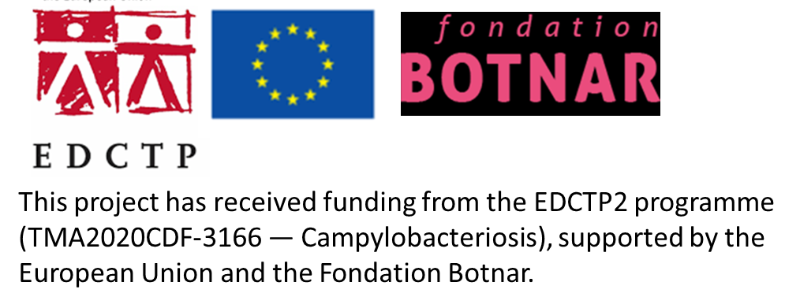Investigating the multiple risk dimensions associated with Campylobacteriosis - a key poverty-related disease of South African urban source water environments.
OVERVIEW
One in five people is at risk of Neglected infectious diseases (NID), such as schistosomiasis, lymphatic filariasis, soil-transmitted helminthiases, onchocerciasis, trachoma, Chagas disease, malaria, and leishmaniasis. NID primarily affect the poorest because of limited access to health services and poor socioeconomic conditions. At least 70% of the countries affected by these diseases have medium-low income economies, mainly in Africa and Latin America. The consequences can be dire on society and development. Unfortunately, most of these diseases receive less attention and are not prioritized in public health policies.
Most importantly, these diseases are neglected in research and not as funded as other infectious diseases such as HIV/AIDs and tuberculosis. According to World Health Organization, most of these diseases can be prevented and even eradicated with appropriate interventions. Consequently, the European & Developing Countries Clinical Trials Partnership (EDCTP) and Fondation Botnar committed to leveraging research funding for neglected infectious diseases (NIDs). The EDCTP is a public-public partnership between institutions mandated by national governments in Europe and sub-Saharan Africa and supported by the European Union. The Fondation Botnar is a Swiss-based foundation that champions Artificial Intelligence and digital technology to improve the health and wellbeing of children and young people in growing urban environments. Bacterial zoonoses are among the most neglected of NIDs. This project focuses on one of the several bacterial zoonoses, Campylobacteriosis. Campylobacteriosis is a disease caused by Campylobacter spp. and is the leading cause of diarrhoea globally. Ingestion of faecal contaminated water is a principal risk factor for Campylobacteriosis. In South African urban centres, wastewater treatment works are overloaded, resulting in the discharges of poorly treated effluents into the receiving rivers. The urban poor, children and mothers, and adolescents largely depend on rivers for recreational activities, spiritual activities such as baptism, harvesting medicinal plants from the riverside, and fishing. Given the link between diarrhoea, poverty, and environmental quality/sanitation, this project applies a more integrated, systemic approach to investigate the multiple risk dimension associated with Campylobacteriosis.
PROJECT TEAM
Principal Investigator (PI):
Dr Chika Felicitas Nnadozie (Rhodes University)
Researchers:
Prof Oghenekaro Nelson Odume ((Mentor) Rhodes University)
Ms Khaya Mgaba (Rhodes University)
Students on the Project
Ms Mary Chibwe
Ms Nandipha Ngoni

Last Modified: Wed, 13 Dec 2023 16:06:07 SAST
